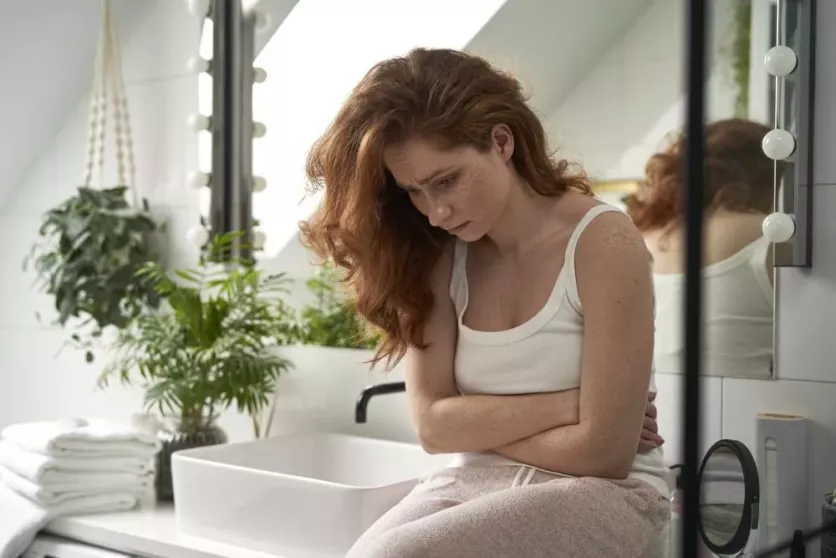Food Poisoning and Intestinal Infections – Common Issues in Indonesia. One should be prepared for such situations. What are the symptoms of poisoning, when should you see a doctor, and can you manage without specialist help? Gastroenterologist shares insights on Bali.Live

- What are the initial symptoms of poisoning?
Symptoms of poisoning include nausea, vomiting (often of previously consumed food), diarrhea, discomfort, abdominal pain, bloating, and possible fever and dehydration symptoms based on the amount of fluid lost through stool and vomiting. Dehydration can manifest as weakness or, in severe cases, coma, depending on the severity.
- Is there a difference in symptoms between food and non-food poisoning?
In food poisoning, the gastrointestinal tract (GIT) is the source of the condition, and the symptoms always start from there. In non-food poisoning (referring to poisoning by inhaled substances or, for example, drugs taken in inadequate doses), there may be manifestations of GIT cleansing, such as diarrhea and vomiting, but additional symptoms corresponding to the toxin can also appear.
- In which cases should one seek medical help immediately?
Immediate medical attention is necessary in the case of uncontrollable vomiting/diarrhea (more than 5 times a day for vomiting, more than 8 times for diarrhea) and the emergence of severe abdominal pain. However, it is essential to understand that in acute surgical pathology, a person does not allow touching their abdomen. If you are cramping your stomach, and yes, it hurts, but you can touch it, almost certainly, it is not an "acute" abdomen. However, there are exceptions, so medical objective assessment is a priority. It is necessary to consult a doctor if neurological symptoms such as seizures, loss of consciousness, or high body temperature persist for more than a day and affect overall well-being.
- What should one do at the first signs, considering we are in Bali?
At the first signs, it is advisable to start a strict diet, not provoking the gastrointestinal tract. Rice, chicken, or vegetable broth as the main diet for a few days. In case of severe diarrhea and vomiting, replenish lost fluids, but not with water (as it also pulls electrolytes, which are already lost), but with isotonic drinks or coconut water, rich in electrolytes. In any minimarket, you will find the Japanese drink Pocari Sweat, which is suitable for body recovery. Take absorbents: activated charcoal - 1 tablet per 10 kg of body weight (for example, if you weigh 60 kg, then 6 tablets. A course of 6 tablets 2-3 times a day for two to three days). Or you can use Smecta: 1 packet three times a day for three days. This will help eliminate toxic products of bacteria or viruses from the gastrointestinal tract. This is sufficient; you just need to endure, as the body copes on its own.
— What local medications should one have in the first aid kit in case of poisoning?
Activated charcoal (Norit - Indonesian name), Pharolit, Pocari Sweat. You will also find Nifural in local pharmacies, but it is already a medication with a bactericidal effect, and it is not recommended to take it without consulting a doctor.
— How to distinguish poisoning from infection?
Poisoning is caused by consuming improper or spoiled food, while infection is caused by bacteria or viruses. The symptoms of food poisoning and intestinal infection are very similar, so for an accurate diagnosis, it is necessary to consult a doctor.
— How does assistance differ between poisoning in an adult and a child?
It is essential to keep a closer eye on a child; they may not be able to assess their condition independently, and worsening may be overlooked. Children are more sensitive to dehydration, so it is crucial to provide them with an adequate amount of fluids.
Regarding treatment: antibiotics are rarely required here, only in severe cases when intravenous therapy is needed, and overall, it is better to go to the hospital. However, sorbents and charcoal will speed up recovery and alleviate symptoms. In most cases, the body knows well how to recover; it just needs not to be disturbed.
In conclusion, I would like to say that food poisoning and intestinal infections can happen to anyone on the island. To prevent such problems, I recommend the following:
- Drink only bottled water, not tap water. Avoid ice that may be made from dirty water.
- Do not eat raw vegetables and fruits if you cannot be sure of their safety. Wash them thoroughly before eating. Cook eggs thoroughly, fry chicken completely – salmonella is not uncommon here.
- Avoid street food, especially food stored in the open air for an extended period.
- Try to visit restaurants with a good reputation and verified reviews.
- Avoid using public toilets if possible.
- Remember the rules of personal hygiene: wash your hands before eating and after using the toilet.
You can add one right now!